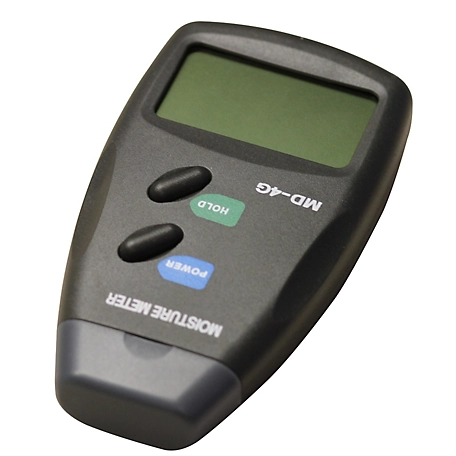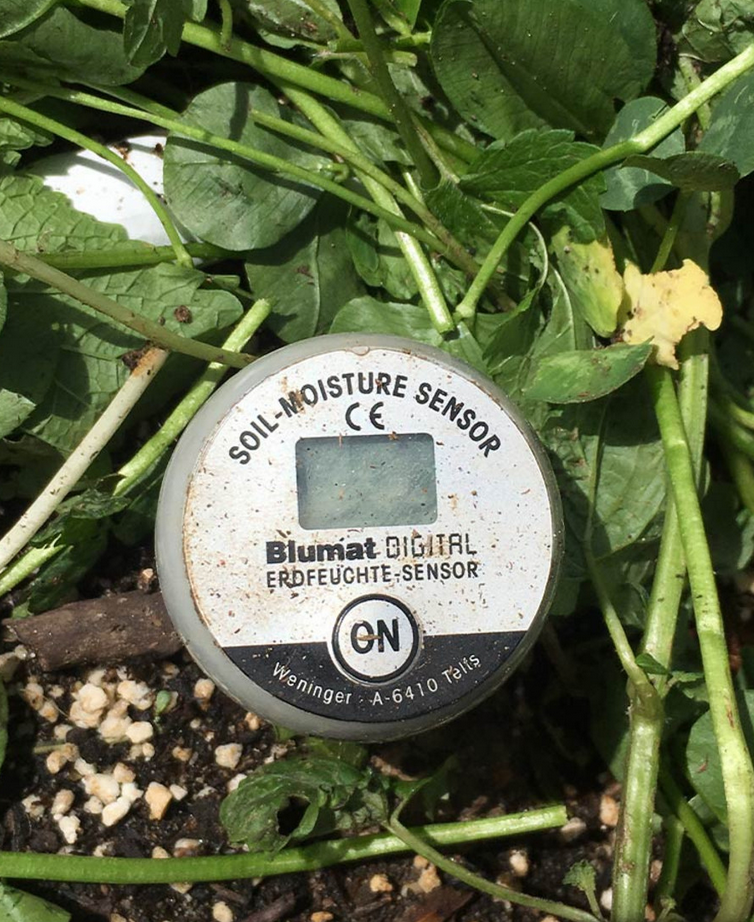How to Use a Moisture Meter to Discover Concealed Water Damages in Your Residential property
How to Use a Moisture Meter to Discover Concealed Water Damages in Your Residential property
Blog Article
The Ultimate Overview to Wetness Meters: A Comprehensive Overview and How They Can Save You Cash
Wetness meters offer as important devices in spotting and monitoring moisture material in products, aiding in avoiding expensive problems and guaranteeing the top quality of products. Understanding the nuances of various kinds of dampness meters, their applications, and the prospective cost-saving benefits they provide can be a game-changer for specialists and services alike.
Sorts Of Wetness Meters
One usual kind is the pin-type wetness meter, which gauges the electric resistance in between two pins placed right into a material. Pinless wetness meters, on the other hand, use electromagnetic sensing unit plates to check a bigger area without causing damages to the product's surface.

Infrared wetness meters measure the thermal buildings of a material to establish its dampness content non-invasively, making them beneficial for applications where pin or pinless meters may not be appropriate. Recognizing the different types of wetness meters readily available can aid industries select the most ideal device for their specific wetness measurement needs.

Benefits of Making Use Of Moisture Meters
Wetness meters provide vital advantages in accurately keeping track of and examining wetness levels in diverse products and atmospheres. One of the main benefits of using moisture meters is the avoidance of possible damage caused by excess dampness.
Moreover, using wetness meters can lead to increased energy performance. In agricultural settings, dampness meters play a vital duty in enhancing crop yields by making it possible for farmers to keep track of dirt wetness degrees and make informed irrigation choices.
Just How to Choose the Right Dampness Meter
When picking a dampness meter, it's crucial to make sure that the meter is appropriate for the specific product you will certainly be testing. Various products have varying electric buildings that can impact moisture analyses, so selecting a meter developed for your product is vital for precise outcomes. By very carefully assessing these variables, you can select a moisture meter that satisfies your requirements and gives exact moisture dimensions for your projects.
Proper Strategies for Moisture Meter Use

Price Financial Savings Via Dampness Meter Applications
Just how can the calculated use of dampness meters bring about substantial price savings across various sectors? Wetness meters play a vital duty in price financial savings by stopping potential damages and making certain quality assurance in different sectors. In the agriculture sector, wetness meters aid in determining the optimum time for gathering crops, protecting against excess or over-drying moisture that can impact the last item's high quality. This accurate monitoring assists farmers avoid unnecessary losses and optimize their yield.
Similarly, in building and construction, moisture meters aid avoid pricey damages by finding moisture degrees in structure materials, such as wood or concrete, which can bring about structural problems otherwise dealt with immediately. By identifying trouble areas early, contractors can take restorative actions to avoid substantial fixings or replacements, ultimately saving time and cash.
Additionally, in the food handling sector, dampness meters are important for keeping an eye on item top quality and ensuring compliance with security guidelines. By properly gauging moisture content in food, producers can stop putridity, preserve freshness, and lower waste, resulting in significant cost savings. In general, the calculated application of wetness meters is a beneficial financial investment that can lead to significant cost decreases and boosted efficiency across various markets.
Final Thought
In conclusion, dampness meters are important devices for detecting and determining wetness degrees in different materials. By using the right dampness meter and following correct techniques, customers can effectively stop expensive problems caused by excess wetness.
Moisture meters serve as indispensable tools in detecting and keeping an eye on moisture content in products, assisting in avoiding pricey damages and making sure the top quality of products. Infrared moisture meters determine the thermal residential properties of a material to identify its wetness content non-invasively, making them beneficial for applications where pin or pinless meters might not be suitable.Wetness meters use very useful advantages in precisely keeping track of and examining dampness degrees in diverse products and settings. In agricultural click here for more settings, moisture meters play an important function in maximizing plant returns by making it possible for farmers to keep track of dirt dampness degrees and make more information educated watering choices.In verdict, dampness meters are beneficial devices for determining and finding dampness degrees in different products.
Report this page